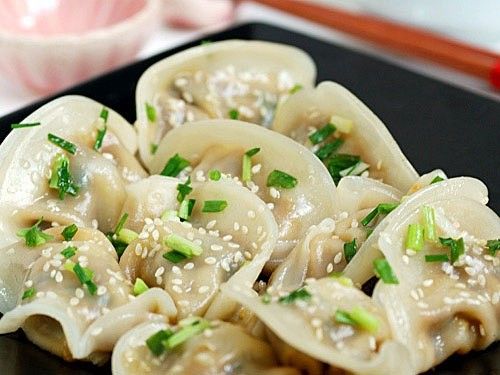Eating dumplings during winter solstice

[Photo from chinadaily.com.cn]
Dumplings are indispensable during the winter solstice of the lunar calendar in each family, whether rich or poor. This custom was formed in memory of the Treatise on Febrile and Miscellaneous Diseases by Zhang Zhongjing, which collects major achievements in Chinese medicine and is regarded as a classic medical work by doctors.
When Zhang Zhongjing acted as Changsha Prefect in the East Han Dynasty (AD 25-220), he always visited patients and gave them medicine free of charge. Later he resigned and returned to his hometown to cure local people.
It was in winter that he left for home. On his way he saw that villagers living on both banks of the Baihe River were sallow, emaciated, cold and hungry. Many villagers' ears were frostbitten. He ordered his pupils to erect a shelter at Dongguan, Nanyang, and to put a cauldron over the fire on winter solstice to make soup to cure frostbite. He boiled mutton, pepper and some cold-clearing medicinal herbs together in the cauldron. Then he made dumplings in the shape of ears, called "jiaoer", by wrapping the boiled minced mutton and herbs. Each person seeking medicine was given two boiled "jiaoer" and a big bowl of soup. After having the soup and "jiaoer", they felt warmer from head to toe and their frostbitten ears were soon cured.
From then on, "jiaoer", or "jiaozi", has spread widely. Having jiaozi on winter solstice commemorates the kindness of Zhang Zhongjing.
